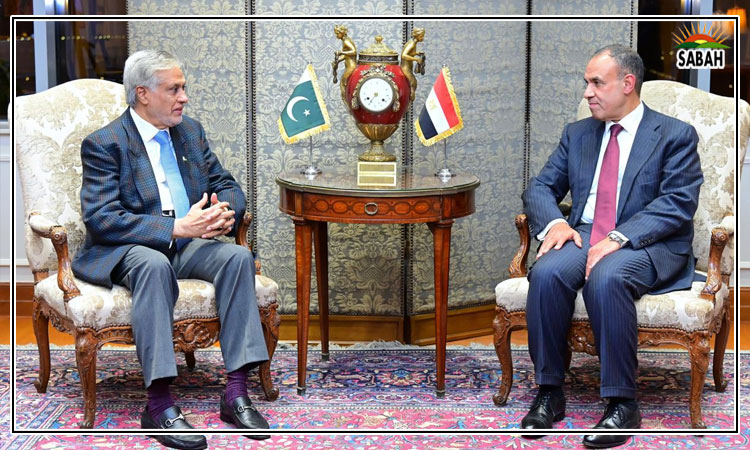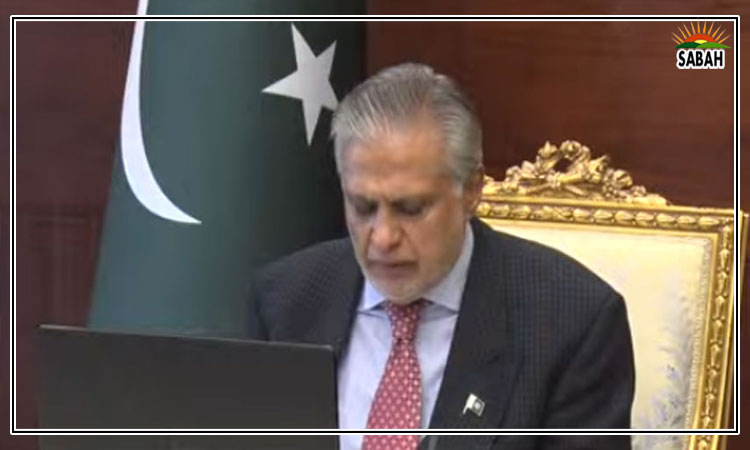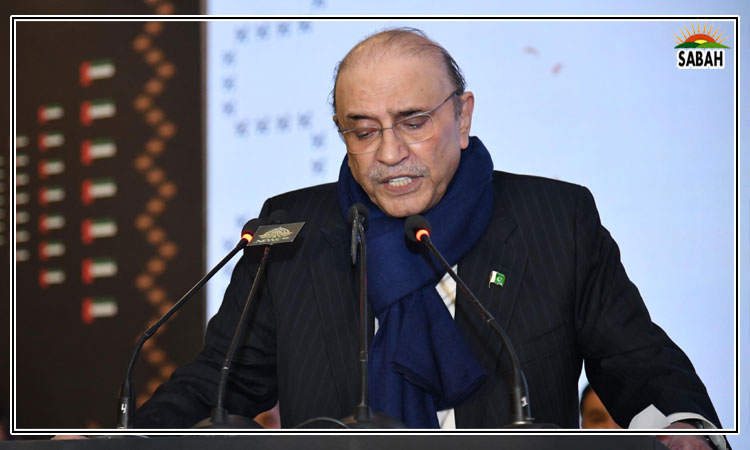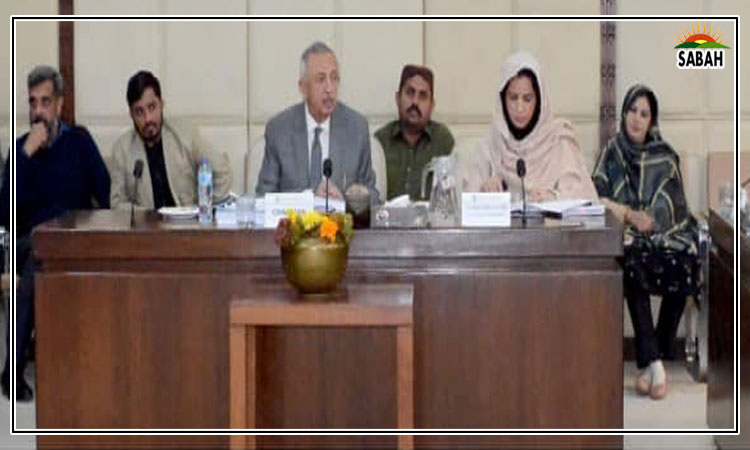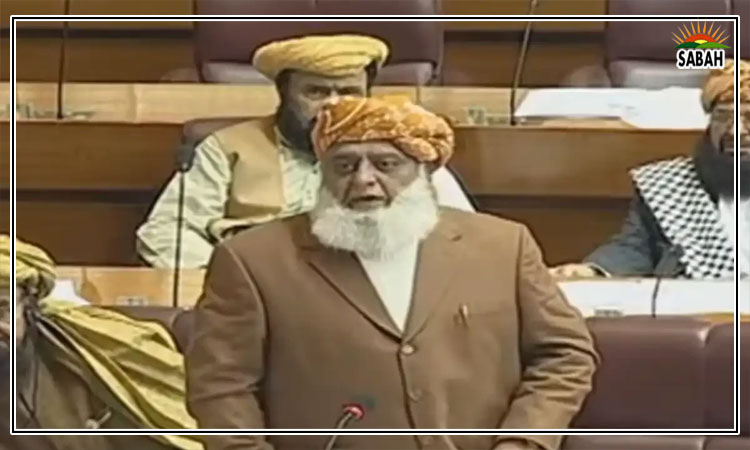The Iran-Saudi pact…Abdul Sattar
The recent rapprochement between Iran and Saudi Arabia has created a ripple of excitement among the people of the region, who have been badly affected by the undeclared cold war between the two countries.
The efforts to normalize ties between the two archrivals might also go a long way in stabilizing the situation in various parts of the region, and helping the people of Yemen put an end to the terrible war that has pushed millions of people towards hunger, starvation and miseries and caused colossal damage to the countrys infrastructure.
The two Middle Eastern powers have expressed their intention to sort out issues in an amicable way, while announcing the restoration of diplomatic ties. It is also believed that this normalization will not only boost economic cooperation between the two countries but also allay apprehensions that the people of two states have about one and another.
Many believe that the leaders of two countries demonstrated great political acumen by accepting the reality of the modern world that advocates the resolution of problems through talks and diplomacy.
It is also hoped that friendly ties between Riyadh and Tehran will pave the way for an effective reconciliation between the Shias and Sunnis of Iraq besides reducing tensions between the pro-Iran and pro-Saudi Arabia political factions in the Middle East and several parts of the Muslim world.
It is expected that positive signals emanating from Riyadh in Tehran might be instrumental in putting an end to the propaganda war unleashed by the media outlets of the two states years ago, bringing the people of the two states closer.
The easing of tensions could greatly benefit the Iranian economy that has been crippled because of the ruthless sanctions imposed by the US and its allies. The recent unrest in Iran was also partly fuelled by the precarious economic situation that has plunged millions of people into a life of misery and impoverishment. These sanctions dealt a severe blow to Iranian oil export, depriving it of its fair share in the global market, causing the loss of billions of dollars over the years.
The US and its European allies tried to isolate Iran at the international level, which also damaged the country diplomatically. Enemies of Iran used this unrest to tarnish the image of the country, asserting that Tehran is no different from a fascist state.
The normalization of ties perhaps will not instantly end Iranian isolation at the international level, but help Tehran find some support at regional forums. While sanctions against Iran are likely to continue, making it difficult for Tehran to get any sigh of relief at the global level, it can enhance Iranian share in regional trade.
After the normalization of relations with the UAE if Iran manages to put aside its differences with Saudi Arabia, it will help boost its image as a country that believes in talks and diplomacy, questioning the narrative that has been projected by the West asserting that the theocratic state seeks regional dominance by bankrolling proxies across the region.
Cordial ties with Tehran will also greatly help Riyadh that has been beset by drone attacks allegedly carried out by the Houthi rebels of Yemen. Riyadh has been trying hard to diversify its economy, pumping billions of dollars into construction of tourist resorts and development of service industries. These sectors of the economy cannot achieve any significant success amidst the atmosphere of hostility and animosity in the region. The fear of attacks in any country dissuades tourists from visiting that country. Such tensions also undermine the efforts that are meant to boost economic development.
Saudi Arabia is almost friendly with every country of the region. After following hawkish policies for some years, its leadership has adopted a pragmatic approach that seems to be promoting regional trade and economic development. The kingdom also seems determined to modernize. Animosity with Iran has greatly benefited the obscurantist forces of the country that thrive on such hostility. Good relations with Iran will allow the kingdom to deprive retrogressive elements of the excuse they employ to stoke anti-Iranian feelings.
Such people with a medieval mindset also scorn the reformist agenda of the current Saudi Arabia government. So, on the domestic front it will strengthen the pragmatist leadership of Riyadh, creating ease to carry out the scheme of modernization that is badly needed for a country which has been accused of fomenting sectarian hatred and religious orthodoxy. It will also help Saudi Arabia project its soft image which is necessary if the kingdom really wants to promote its services sector and diversify its economy.
The rapprochements between Tehran and Riyadh will also boost the image of China as a global leader. Beijing has emerged as an influential country in a region that has been plagued by wars, conflicts and hostilities. The Chinese involvement also reflects the waning power of the US that is more interested in selling weapons to all the rival states instead of coming up with a solution to the problems being faced by the region. The people of the Middle East might remember China as the country that helped create a situation where they could have a sigh of relief, and Washington as an actor that did nothing for the region except fueling more tensions.
These good gestures by the two countries also indicate that the world is finally entering into an era of effective multilateralism. First, Russia stabilized war-torn Syria a few years ago and now China is trying to create the atmosphere that might go a long way in fostering regional unity and promoting business and trade in not only the Middle East but beyond as well. The prospects of this unity are bright because Riyadh is not only normalizing ties with Iran, but has also made efforts to put aside its differences with Damascus while enjoying good ties with the Iraqi government that also played a crucial role in bringing the two states closer.
The rapprochement should serve as a reminder to the belligerent leadership of Israel that has been seeking regional domination through fear and intimidation. Tel Aviv needs to realize that by violating international laws and usurping the rights of Palestinians, it cannot move forward. The conflict in the region that was primarily caused by the adamancy of the Israeli leadership has pushed the Middle East towards a conflagration several times during the last seven decades.
It is time the leadership in the power corridors of Tel Aviv understood that snatching the rights of people and imprisoning them in a giant jail cannot be acceptable in the modern world which has to take global norms and diplomatic principles into consideration before showing respect and honour to a state.
A regional union of Middle Eastern countries and the Arab world is not a utopian idea, provided the attitude of all leaders is dictated by the principles of modern civilization. All countries of the region will have to give up their dream of seeking regional dominance through military might.
All might have to agree that nuclearization of the region and the insane arms race is not the way forward. Instead of plunging into despair and hopelessness, pacifists in Israel should come forward and welcome this move urging their leadership to abandon the belligerent approach that it has adopted towards the occupied people of Palestine.
Courtesy The News


